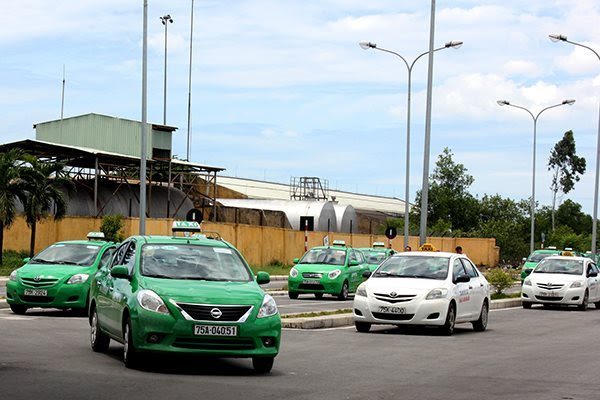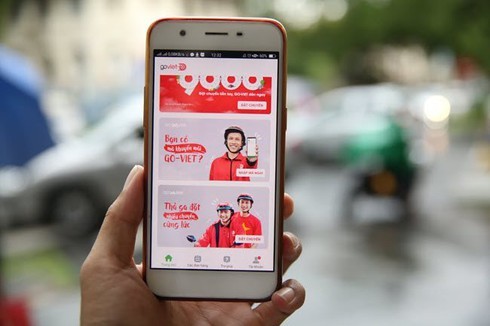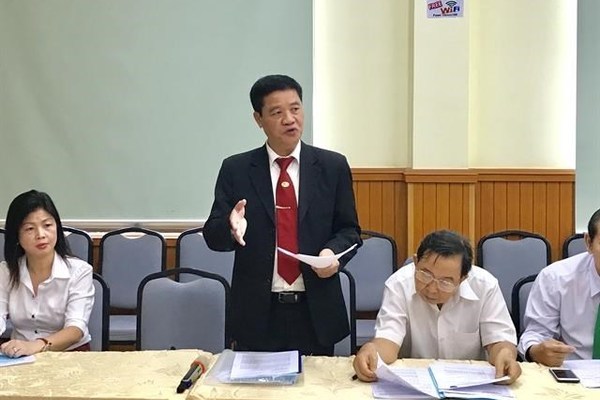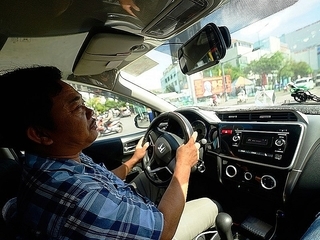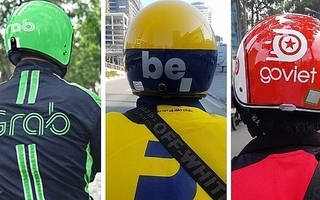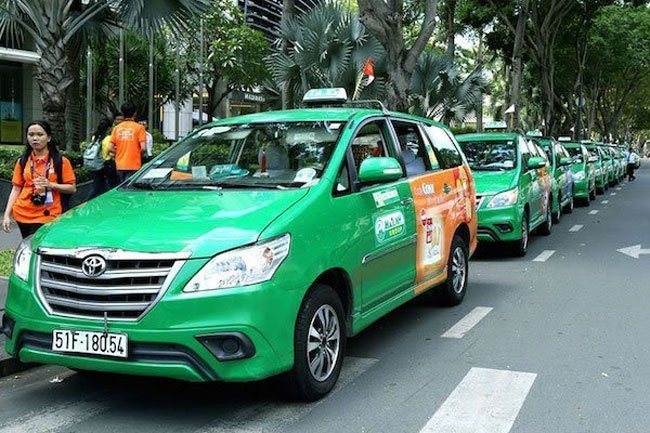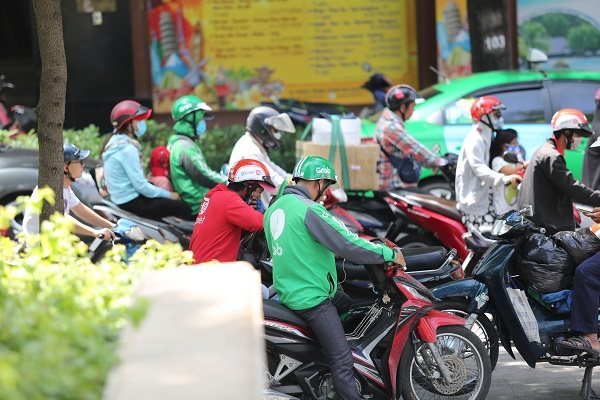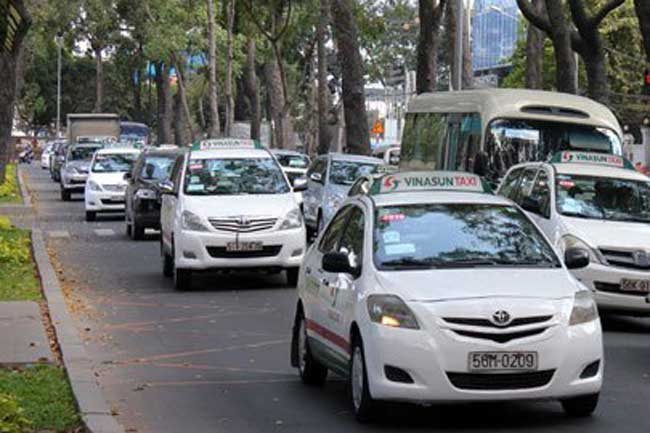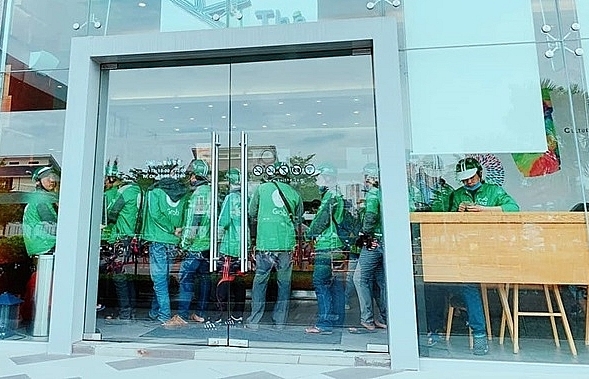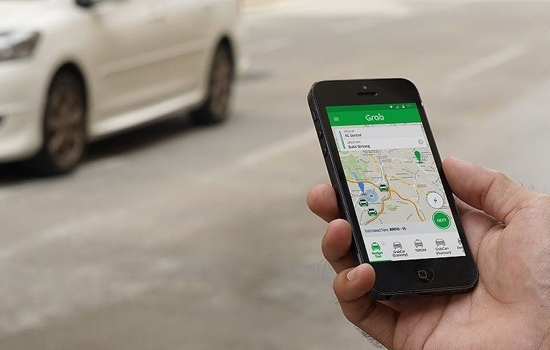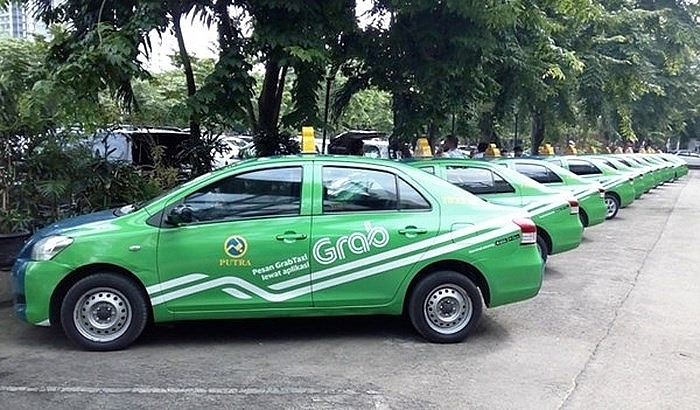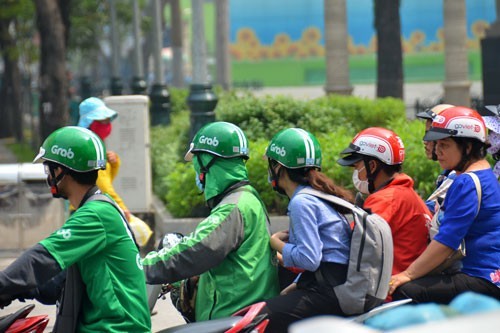- © Copyright of Vietnamnet Global.
- Tel: 024 3772 7988 Fax: (024) 37722734
- Email: [email protected]
Grab
Update news Grab
Light boxes may no longer be mandatory for ride-hailing vehicles in Vietnam
 Traditional taxis and ride-hailing vehicles need not have light boxes installed as the Ministry of Transport has changed its stance, amending a government decree on transport business.
Traditional taxis and ride-hailing vehicles need not have light boxes installed as the Ministry of Transport has changed its stance, amending a government decree on transport business.
Gojek, Grab seek to expand services in Vietnam
 Ride-hailing firms Grab and GoViet, a subsidiary of Indonesia's Gojek, have taken turns to announce plans to pump additional funding into expanding their services in Vietnam to win more riders in this fast growing market.
Ride-hailing firms Grab and GoViet, a subsidiary of Indonesia's Gojek, have taken turns to announce plans to pump additional funding into expanding their services in Vietnam to win more riders in this fast growing market.
A sharing economy for new startups
 The rapid development of the IT revolution has helped startups generate a buzz in the social circle, establishing a new era of promoting globalisation in all sectors while building a new economy – the sharing economy.
The rapid development of the IT revolution has helped startups generate a buzz in the social circle, establishing a new era of promoting globalisation in all sectors while building a new economy – the sharing economy.
Vietnam’s digital economy expected to account for 20% of GDP by 2025
 The Politburo’s Resolution No 52 set a goal that Vietnam’s digital economy would make up 20 percent of GDP by 2025.
The Politburo’s Resolution No 52 set a goal that Vietnam’s digital economy would make up 20 percent of GDP by 2025.
Vietnam’s ride hailing market exceeds US$1-billion revenue
 The market is on track to hit US$4 billion by 2025, becoming the fourth in the region, after Indonesia, Singapore and Thailand.
The market is on track to hit US$4 billion by 2025, becoming the fourth in the region, after Indonesia, Singapore and Thailand.
Kakao and Grab mull over partnership in Vietnam
 If successful, Kakao’s presence in Vietnam would mark its second overseas expansion after it signed a partnership with Japan Taxi last year to enable call taxi services for Korean users.
If successful, Kakao’s presence in Vietnam would mark its second overseas expansion after it signed a partnership with Japan Taxi last year to enable call taxi services for Korean users.
Malaysia proposes $20 million fine on Grab for abusive practices
 The Malaysia Competition Commission (MyCC) has proposed a fine of over 86 million ringgit (20.5 million USD) on ride-hailing firm Grab for violating competition law by imposing restrictive clauses on its drivers.
The Malaysia Competition Commission (MyCC) has proposed a fine of over 86 million ringgit (20.5 million USD) on ride-hailing firm Grab for violating competition law by imposing restrictive clauses on its drivers.
Motorbike taxis must be registered in Hanoi
 Drivers of "xe om" – or motorbike taxis will have to register with authorised agencies, according to a new draft regulation on the management and use of non-motorised vehicles and motorcycles in Hanoi.
Drivers of "xe om" – or motorbike taxis will have to register with authorised agencies, according to a new draft regulation on the management and use of non-motorised vehicles and motorcycles in Hanoi.
‘Super-app’ race gets scorching hot
 Go-Viet is speeding up, 'Be' has launched more services, and MoMo has expressed its intention to join the race, while Grab has a new strategy.
Go-Viet is speeding up, 'Be' has launched more services, and MoMo has expressed its intention to join the race, while Grab has a new strategy.
Traditional taxi firms demand equal treatment with ride-hailing apps
 Traditional taxi companies have demanded that app-based taxis with less than nine seats should be treated the same as them to “ensure fairness, transparency and the same responsibilities towards customers.”
Traditional taxi companies have demanded that app-based taxis with less than nine seats should be treated the same as them to “ensure fairness, transparency and the same responsibilities towards customers.”
Ride-hailing vehicles to be managed by technology?
 App-based ride-hailing vehicles may be managed by technology, instead of having to install a light box on top as proposed by the Ministry of Transport (MoT) earlier.
App-based ride-hailing vehicles may be managed by technology, instead of having to install a light box on top as proposed by the Ministry of Transport (MoT) earlier.
Grab, Go-Viet, and Be: who is the stingiest?
 Bonus payments for ride-hailing drivers seem a lot less forthcoming now that the firms have gained a firmer foothold in Vietnam. Comparing Grab, Go-Viet, and newcomer Be, the Singaporean giant seems the most tight-fisted.
Bonus payments for ride-hailing drivers seem a lot less forthcoming now that the firms have gained a firmer foothold in Vietnam. Comparing Grab, Go-Viet, and newcomer Be, the Singaporean giant seems the most tight-fisted.
PM rejects roof-lights proposal for tech-based cabs
 PM Nguyen Xuan Phuc has asked the Ministry of Transport to scrap unnecessary business conditions for transport firms, including a proposal for making roof light boxes mandatory for ride-hailing vehicles with fewer than nine seats.
PM Nguyen Xuan Phuc has asked the Ministry of Transport to scrap unnecessary business conditions for transport firms, including a proposal for making roof light boxes mandatory for ride-hailing vehicles with fewer than nine seats.
More players enter Vietnam e-hailing market
 Three years ago, the e-hailing market was the playing field of two foreign names, Grab and Uber. Now, the number of firms has increased.
Three years ago, the e-hailing market was the playing field of two foreign names, Grab and Uber. Now, the number of firms has increased.
Vinasun appeals VCC’s conclusion on Grab-Uber merger
 Vinasun has voiced its opposition to the conclusion of the Vietnam Competition Council (VCC) that the merger between ride-hailing firms Grab and Uber in the country showed no signs of economic concentration.
Vinasun has voiced its opposition to the conclusion of the Vietnam Competition Council (VCC) that the merger between ride-hailing firms Grab and Uber in the country showed no signs of economic concentration.
GrabFood may be disadvantaged by high commission rates
 In case GrabFood continues to charge 20-25 per cent commission for local vendors, it may lose ground to Go-Viet and Now.
In case GrabFood continues to charge 20-25 per cent commission for local vendors, it may lose ground to Go-Viet and Now.
Should ride-hailing vehicles install taxi signs?
 Vietnam’s proposal requesting all ride-hailing vehicles to put taxi signs on vehicles will weigh down disruptive businesses and dampen benefits to stakeholders.
Vietnam’s proposal requesting all ride-hailing vehicles to put taxi signs on vehicles will weigh down disruptive businesses and dampen benefits to stakeholders.
VN Competition and Consumer Protection Authority submits complaint about Grab-Uber ruling
 The Vietnam Competition and Consumer Protection Authority (VCA) submitted a complaint about the decision of the Vietnam Competition Authority that Grab's acquisition of Uber does not violate the Competition Law.
The Vietnam Competition and Consumer Protection Authority (VCA) submitted a complaint about the decision of the Vietnam Competition Authority that Grab's acquisition of Uber does not violate the Competition Law.
The battle in the e-hailing market among the 'big four'
 After the departure of Uber, the e-hailing market is now the playing field of four big players, each of which has its own advantage and approach.
After the departure of Uber, the e-hailing market is now the playing field of four big players, each of which has its own advantage and approach.
E-hailing apps expand to e-payment services
 Ride-hailing apps have been expanding their market share, attracting more customers and becoming more ambitious in the e-payment field.
Ride-hailing apps have been expanding their market share, attracting more customers and becoming more ambitious in the e-payment field.
